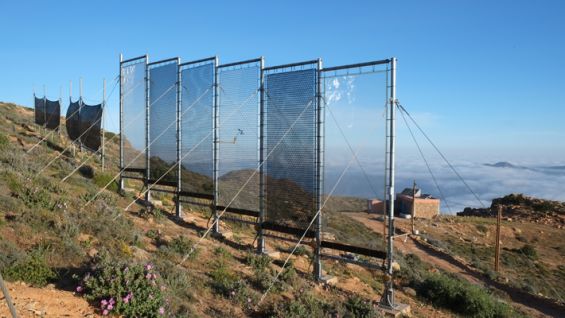Dar Si Hmad association was the first organization to bring the technology of water harvesting in the Moroccan Kingdom. Established in south-west Morocco, Dar Si Hmad collaborated in 2006 with the University of La Laguna and launched an observation period for the evaluation of water potential in Boutmezguida, located near Sidi Ifni. According to the official website of the NGO, the results of the observation phase were out by 2011 resulting in the construction of 600 meter squared (around 2,000 ft sq) nets on top of Mt Boutmezguida.
The project later in 2015 managed to provide potable water to the population of the village. The new net generation funded by Munich Re Foundation and developed by the Technical University of Munich, was able to build pipes transmitting water to five other douars in the region. The fog-collecting organization started in January 2017 «the construction of CloudFishers, in 13 villages to be supplied with drinking water».
Does fog collecting empowers women ?
The fog collecting organization was inspired by Si Hmad Derhem (1909-1982) a native of Taloust in Ait Baamran who worked on promoting and improving the living conditions for and with the population of the region. Their goal, besides providing water to the residents of villages, is to also promote the lives of women. For that they were granted in November 2016 the UNFCCC prize set by the United Nation Climate Change Convention, and were honored at the COP22 for their achievement and their commitment to women in particular.
In a community where women take care of labor responsibilities and where water is an important component of daily life, girls are tasked with walking miles to retrieve water instead of going to school. Fog harvesting helped with this problem by providing water and allowing young girls to attend school.
Yet, things were not seen this way by FairObserver, an online newspaper that published today an article about the fog collecting project in Morocco stating that : «Even if women and girls are able to attain higher levels of education and generate more wealth, the project lacks a vision for helping women balance new responsibilities with unpaid domestic labor». The authors of the article indicate that «the project does not challenge cultural norms in the region arguing that a redistribution of labor responsibilities surrounding the collection of water can shift existing power structures without significantly increasing girls’ enrollment in school».





 chargement...
chargement...













